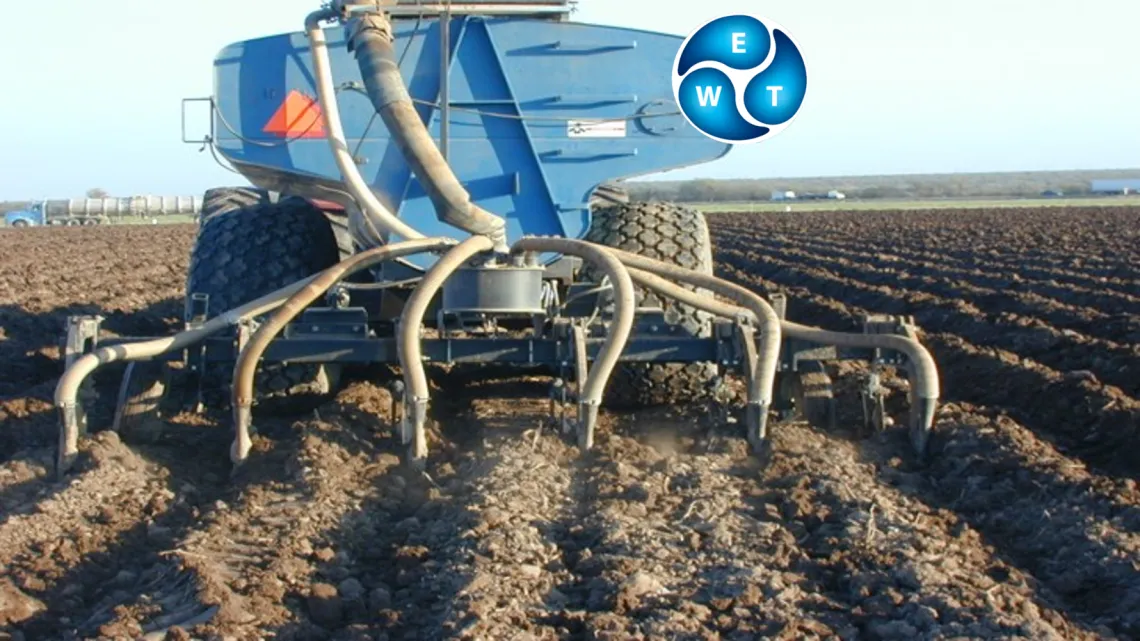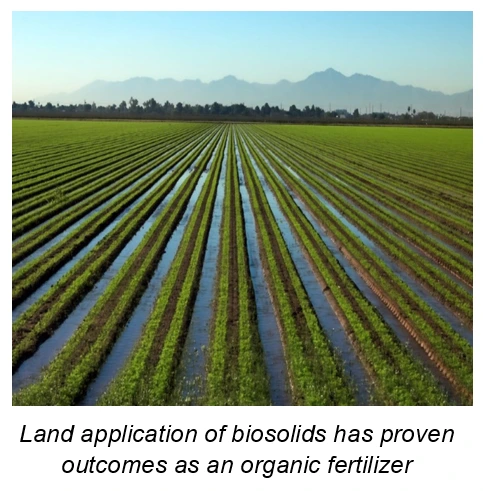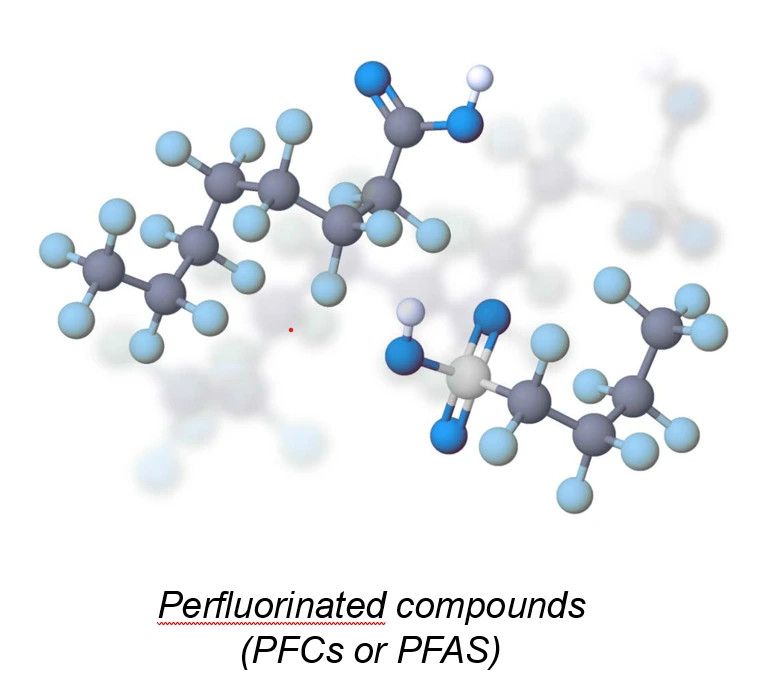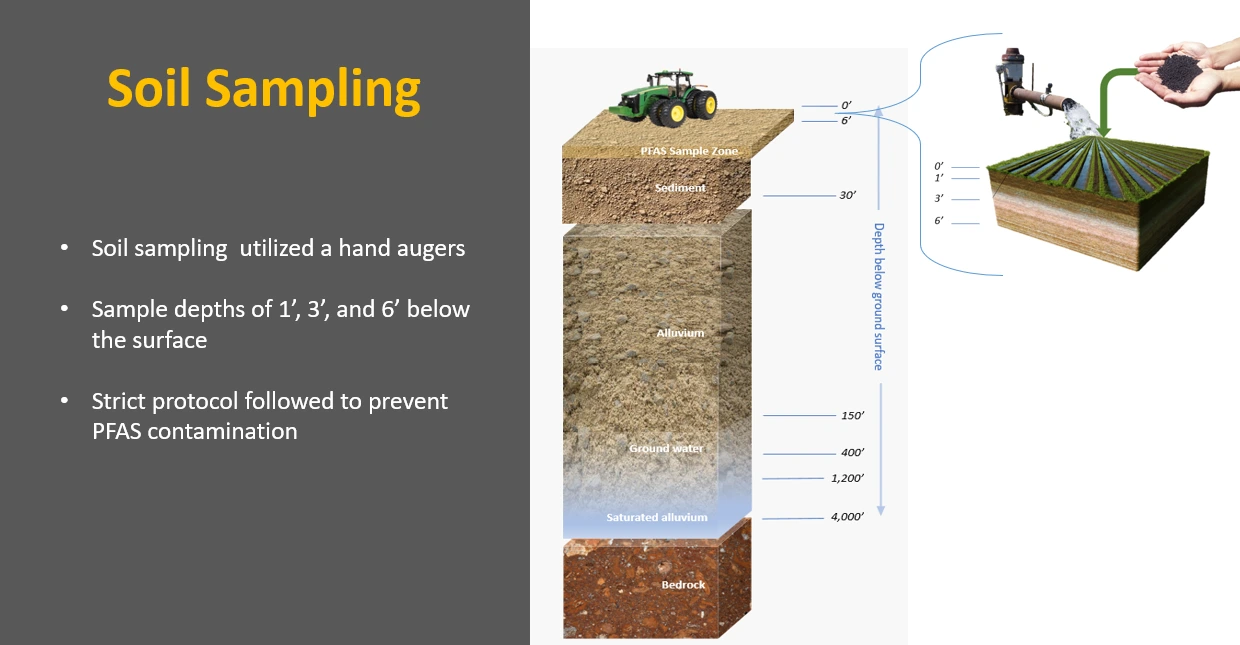WEST collaborates with Pima County to lift moratorium on land application of biosolids

Per- and polyfluoroalkyl substances, also known as PFAS, are fluorinated compounds that comprise a family of anthropogenic chemicals used for decades to make products resistant to heat, oil, grease, and water. Once introduced into the environment, they are very persistent and are now found in most soils, sediments, water, and living organisms, including humans. Due to potential adverse health effects, PFAS compounds are now regarded by the EPA as emerging contaminants. Perfluorooctane sulfonate (PFOS) and perfluorooctanoic acid (PFOA) were voluntarily phased out of production by 2015, and a lifetime health advisory limit for drinking water was set by the EPA at 70 parts per trillion (ppt) for these specific compounds.
Concern over PFAS in the environment recently impacted the handling of biosolids, the solid endpoint of wastewater treatment. In the U.S., over 60% of biosolids are land applied, and in Pima County, 100% of locally produced biosolids were land applied until early January 2020. In many parts of the country, land application has long been the most efficient use for biosolids, with benefits for disposal costs and proven outcomes as an organic fertilizer - improving plant growth, crop production, and soil health. However, biosolids also contain small amounts of PFAS in the low parts per billion (ppb) range. On January 1, 2020, a temporary moratorium on land application was placed on biosolid disposal in Pima County, AZ until risks from PFAS in biosolids could be fully evaluated. In particular, concern was expressed over the possibility of groundwater contamination.
The moratorium was enacted to protect environmental and public health. However, it required that all biosolids be landfilled, doubling biosolid management costs for the County and removing the availability of a beneficial product widely used by local farmers in agricultural production. To advance understanding of environmental effects, Pima County Wastewater joined forces with the WEST Center research team to evaluate the potential impact of land application on groundwater contamination by PFAS.
Led by partners Pima County Wastewater and WEST Center, with support from Jacobs Engineering and the National Science Foundation, the ensuing study is one of the largest of its kind. In the collaborative project, researchers worked with local farmers to identify agricultural sites where Class B Biosolids had been land applied since 1984, with known recorded application rates. Samples of soil, well water, and biosolids were collected and analyzed for a suite of PFAS compounds. In total, 109 samples were collected including soil samples from various depths, groundwater samples from irrigation wells, biosolids samples, and a surface soil sample. For comparison and control, samples were collected from five field types, from undisturbed desert soil and agricultural soils with 0 to >30 tons cumulative biosolid loading rates. Analyses were conducted by Eurofins TestAmerica, an international-certified laboratory specializing in PFAS determination in soils.
The research found:
- Input of PFAS from long-term land application of biosolids is minimal.
- The presence of PFAS in irrigation sources likely contributes to its detection in soils.
- PFAS in soils with biosolids was slightly higher than agricultural soils without biosolids.
- PFAS concentrations rapidly decrease with depth.
- There is 90% - 97% attenuation and minimal migration of PFAS below 6’.
- The potential for groundwater contamination is minimal.
As stated in the Pima County Wastewater Reclamation report published in October 2020, “PFAS in Biosolids: A Southern Arizona Case Study”:
"(The) study took a broad look at PFAS contamination, retention, and migration in farm soils where biosolids were historically land applied. The data presented demonstrate very low concentrations of PFA compounds in soils receiving biosolids with migration attenuated in the first few feet of soil. The concentrations are lower than published health-based screening criteria published by the USEPA. The low concentrations of PFAS in biosolids coupled with depth to groundwater of 150’ – 400’ and Arizona’s low rainfall alleviates risk and helps minimize the impacts on public health and groundwater."
Due to the collaborative study, the moratorium on land application in Pima County was lifted in November 2020. With land application being threatened nationally due to PFAS concerns, the WEST Center - Pima County Wastewater study is very significant, helping to inform biosolid disposal/use decisions in communities across the country.
Update June 2021: An article containing these findings, "Incidence of Pfas in soil following long-term application of class B biosolids," was published in the peer-reviewed journal Science of the Total Environment in June 2021.




